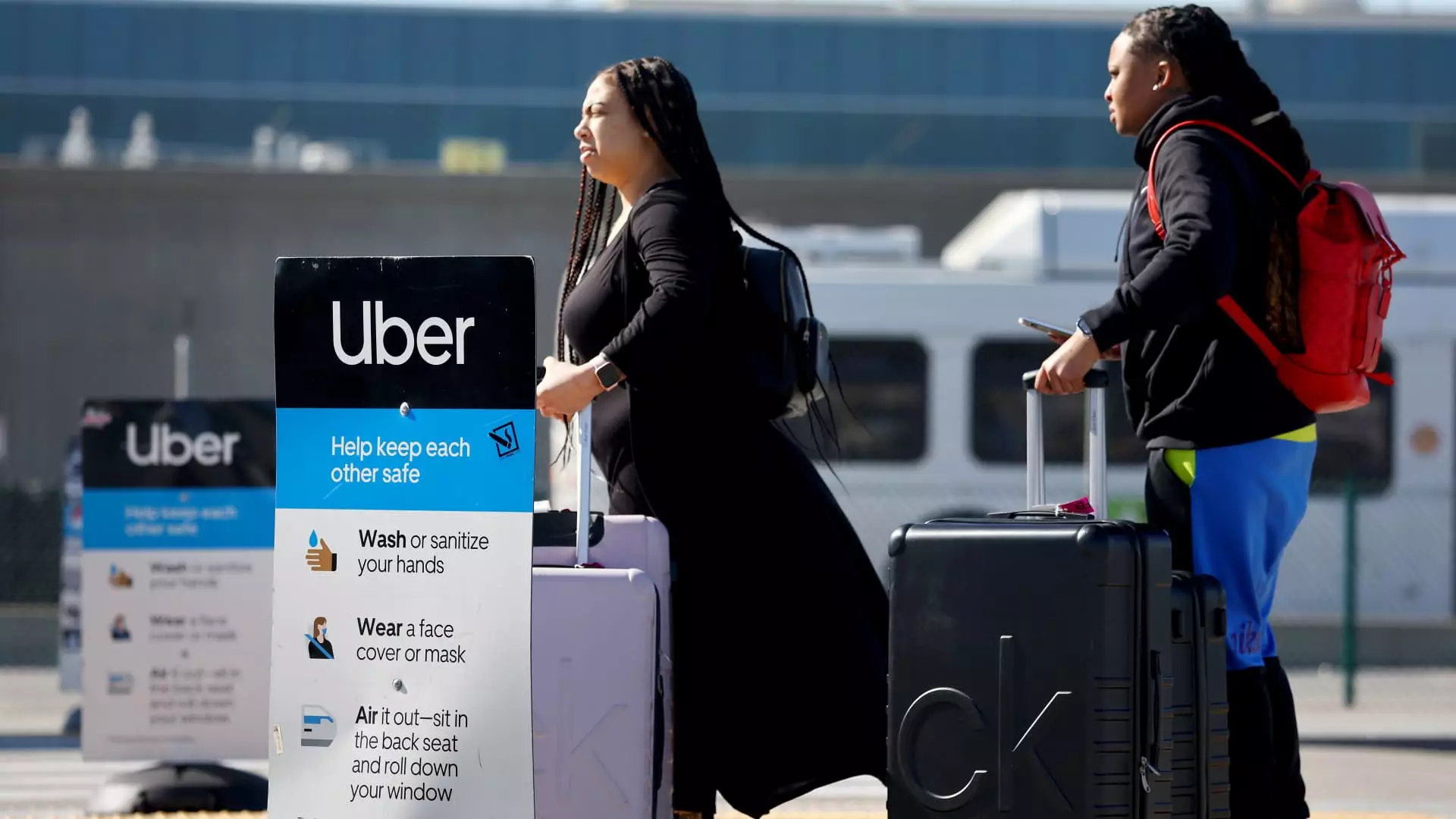In a significant shift that reflects the evolving landscape of travel and loyalty programs, Delta Air Lines has announced a new partnership with Uber, effectively ending its previous collaboration with Lyft. This strategic move, set to take effect in the spring, is aimed at enhancing the travel experience for Delta’s SkyMiles members as they navigate through airports. Both companies have expressed optimism about the benefits this collaboration will bring to their respective customer bases, but the implications of this change merit further examination.
As part of the new agreement, Delta SkyMiles members will have the opportunity to accrue miles through their Uber rides, with a structured earning system based on the type of service selected. Passengers opting for standard UberX services will earn one mile for every dollar spent, while premium services like Uber Comfort and Uber Black will net users two miles per dollar. Most notably, rides booked through Uber Reserve will reward riders with three miles for every dollar spent. This structure reflects a growing trend among airlines to provide more integrated and flexible reward systems, ensuring that customers can maximize their travel rewards not just through flights, but also during ground transportation.
The introduction of rewards for Uber Eats orders further broadens the earning potential for SkyMiles members, allowing them to accumulate miles with their food delivery purchases, thus reinforcing customer engagement both while traveling and at home. This extensive approach to loyalty incentivizes frequent travelers by connecting different aspects of their daily lives to their travel rewards, creating a seamless experience.
After maintaining an eight-year partnership with Lyft, Delta’s decision to pivot to Uber raises questions about the motivations behind this transition. While specific reasons have not been disclosed by Delta, it is crucial to consider the competitive dynamics in the ride-hailing market. Lyft, while a prominent player, has a considerably smaller user base compared to Uber. As of the third quarter of last year, Lyft reported 24.4 million active riders, whereas Uber’s platform boasted a staggering 161 million users worldwide.
By aligning with Uber, Delta potentially seeks to capitalize on Uber’s vast customer reach and diversified services, which extend beyond just rides to include food delivery and freight. This strategic partnership could allow Delta to tap into a broader audience and consequently drive more customer loyalty and engagement through its SkyMiles program.
For existing SkyMiles members who have linked their Lyft accounts, Delta has announced that miles will continue to accumulate through April 7. This transition period indicates Delta’s commitment to its loyal customer base, ensuring they are informed and adequately accommodated during the switch. However, the potential disruption for regular Lyft users who have been accustomed to earning miles through that platform cannot be overlooked.
Lyft’s response to the termination of its partnership with Delta emphasizes its ongoing collaborations with other brands, such as Alaska Airlines and Chase, which indicates a strategy to maintain customer loyalty through diverse partnerships. Whether these adjustments can mitigate the impact of losing Delta as a partner, however, remains to be seen.
The decision to partner with Uber aligns seamlessly with Delta’s overall business strategy, particularly its existing relationship with American Express, which offers cardholders credits for Uber services. This indicates a symbiotic relationship where financial partners also play a role in enhancing customer retention and satisfaction, potentially positioning Delta for significant financial gains, with projections estimating $7 billion in revenue from American Express in 2024.
This shift in partnerships marks a broader trend in the airline industry, where frequent flyer programs are increasingly becoming a nexus for cross-industry collaborations. As airlines look to monetize their loyalty programs further, partnerships like the one established between Delta and Uber may set a precedent in how loyalty programs are structured in the future.
Delta Air Lines’ new partnership with Uber marks a pivotal moment not only for the airline but for loyalty programs as a whole. By fostering a linked ecosystem of travel experiences, Delta continues to emphasize the importance of convenience and rewards in an increasingly competitive market. As travelers prepare for potential changes in their earning methodologies, the aviation and ride-hailing industries will closely watch how these dynamics evolve.

